Decoding The Ick: Understand That Sudden Nosedive in Desire, Its Psychology, and What It Reveals About You & Modern Relationships. 👀
The Ick" is that sudden, inexplicable moment your desire nosedives. More than a turn-off, it's a full-body repulsion. Explore its surprising psychology, hidden triggers, & what this modern phenomenon reveals about you and relationships in the swipe-left world.

It happens in an instant. One moment, you're mesmerized by someone-the way they laugh, the warmth in their eyes, how they stir their coffee just so. And then: bam. The same laugh now grates, the warmth feels performative, the coffee stir? Weirdly aggressive. Desire doesn't just wane; it nose-dives, leaving confusion, discomfort, and maybe even a tinge of guilt in its wake.
This is "the ick."
If you've dated in the last decade, chances are you've felt it. That inexplicable, full-body recoil at a minor quirk or gesture from someone you were, until moments ago, totally into. Maybe it was the way they misused "your" and "you're," or how they said "nom nom" before taking a bite. Whatever it was, it didn't just bother you-it repulsed you. Not mildly. Not logically. But viscerally.
"The ick" isn't just a turn-off. It's a psychic handbrake. And it's having a cultural moment.
Thanks to reality TV shows like Love Island (where Olivia Attwood famously coined the term in 2017) and the meme-forged echo chamber of TikTok, "the ick" has become dating's go-to diagnosis for sudden disenchantment. Viral videos rack up millions of views recounting bizarre yet weirdly relatable ick-inducing moments-from someone chasing a ping pong ball to the way they hold a fork.
But beneath the hashtags and humor lies something far more revealing. "The ick" is not just a pop-psychology punchline. It's a mirror. One that reflects not only our reactions to others but our inner architecture of desire, fear, and fantasy. It begs us to ask: What are we really recoiling from? Them... or something within ourselves?
In this piece, I unpack the cultural explosion of "the ick," trace its lesser-known historical roots, and dissect its deeper psychological mechanics. We'll explore when it signals an inner fear versus a legitimate red flag, and how this seemingly silly sensation might actually hold clues to the anxieties of modern love. Most importantly, we'll learn how to listen to "the ick" without letting it hijack our chance at genuine connection.
Because sometimes, the feeling that repels us says more about where we need to grow than who we need to leave.
The "Ick" Through the Ages: A Brief History of Disenchantment 📜
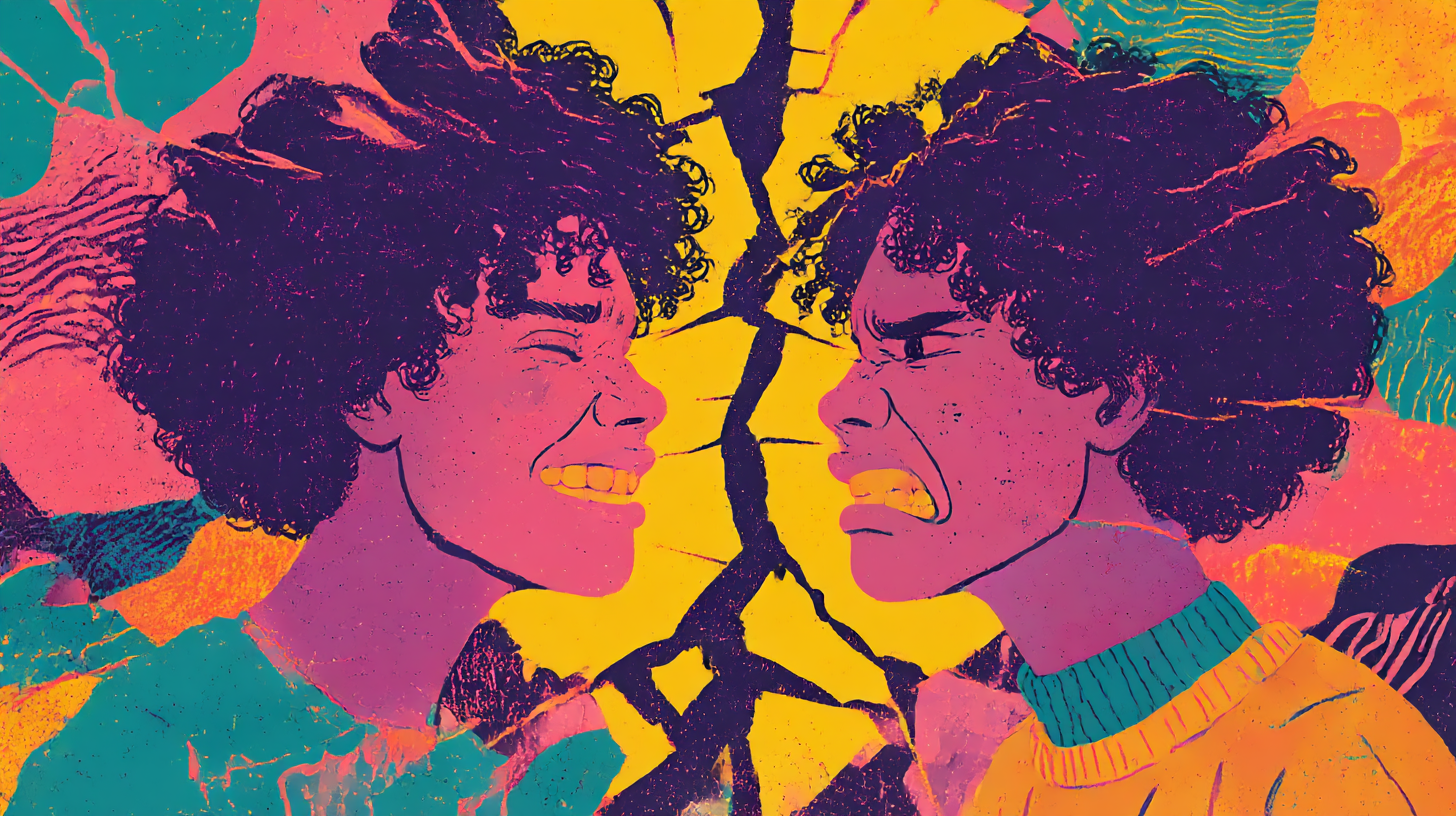
While "the ick" might sound like a made-for-TikTok phenomenon, its emotional DNA is ancient.
Long before it had a name, people have experienced that sharp pivot from attraction to repulsion. It's been hinted at in literature, love letters, and awkward breakup scenes. Jane Austen didn't call it "the ick," but when Elizabeth Bennet is repulsed by Mr. Collins's obsequiousness in Pride and Prejudice, she might as well have. The Greeks had their own version in myths where lovers were undone not by betrayal, but by an unshakable sense that something had suddenly shifted.
Even in pop culture, this emotional snap has echoed across decades. In Ally McBeal (1998), Ally describes a feeling of abrupt, inexplicable aversion to a man she had been dating. Carrie Bradshaw, the patron saint of modern neuroses, wrestled with a similar sentiment in Sex and the City (2003), narrating the moment when a partner becomes less alluring and more... irritating. These depictions didn't have a hashtag, but they captured the essence.
Then came 2017. Olivia Attwood on Love Island casually dropped the term "the ick" on national television, instantly branding a shared emotional experience. From there, the term snowballed-especially among Gen Z, who amplified it through short-form video storytelling on TikTok. Suddenly, "the ick" wasn't just a feeling; it was a punchline, a confession, a collective exhale.
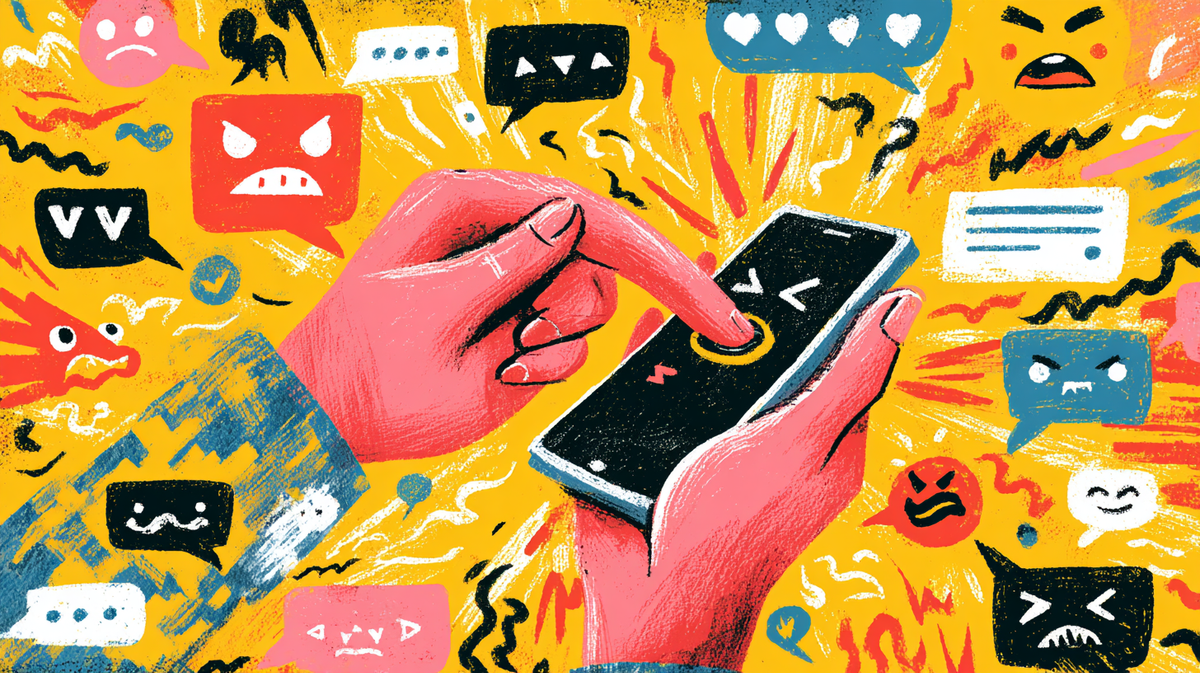
But despite its comic framing, "the ick" speaks to something real: a moment when the illusion of perfect compatibility shatters. It's not a red flag, exactly. Red flags are behavioral warnings-lying, cruelty, chronic flakiness. The ick is subtler. It's a reaction to "intangible indignities"-the way someone chews, the frequency of their texts, their affinity for baby talk with their dog.
In a way, it's disenchantment in hyperspeed. It's the collapse of fantasy under the weight of reality-not because the reality is bad, but because it intrudes on our imagined version of the other. The perfect partner we conjured can't survive a minor mismatch or a cringe moment. And so, we flinch.
Understanding where "the ick" comes from and why it hits so hard is the first step in deciding whether to heed its warning or question its urgency. What follows next is a journey into the brain's back alleys-the psychology of why we recoil, and what our nervous system might be trying to tell us when it screams, "Get out. Now."
The Psychology Behind the "Ugh": What Your Nervous System is Saying 🧠

At first glance, "the ick" feels like a mystery. But our bodies know. This jolt of repulsion is often a primal whisper-or scream-from our nervous system, serving a protective role we might not fully understand.
At its core, "the ick" can be an evolutionary artifact. Disgust, after all, evolved to protect us from harm-rotten food, diseased bodies, unsanitary conditions. But modern life has expanded its reach. Research suggests that disgust has been co-opted to flag not only physical contaminants but social and moral ones too. In relationships, it can surface as an instinctive pushback against perceived incompatibility, signaling that something-however minor-feels off.
But that's not the whole story.
Psychologically, "the ick" often reveals more about the person feeling it than the one inspiring it. For some, it may stem from perfectionism or an inflated ideal of what love should feel like. As psychologist Dr. Alexandra Solomon puts it, "We live in a culture that sells fantasy over reality. When fantasy fails, we often panic." The panic is real-and so is the flinch.
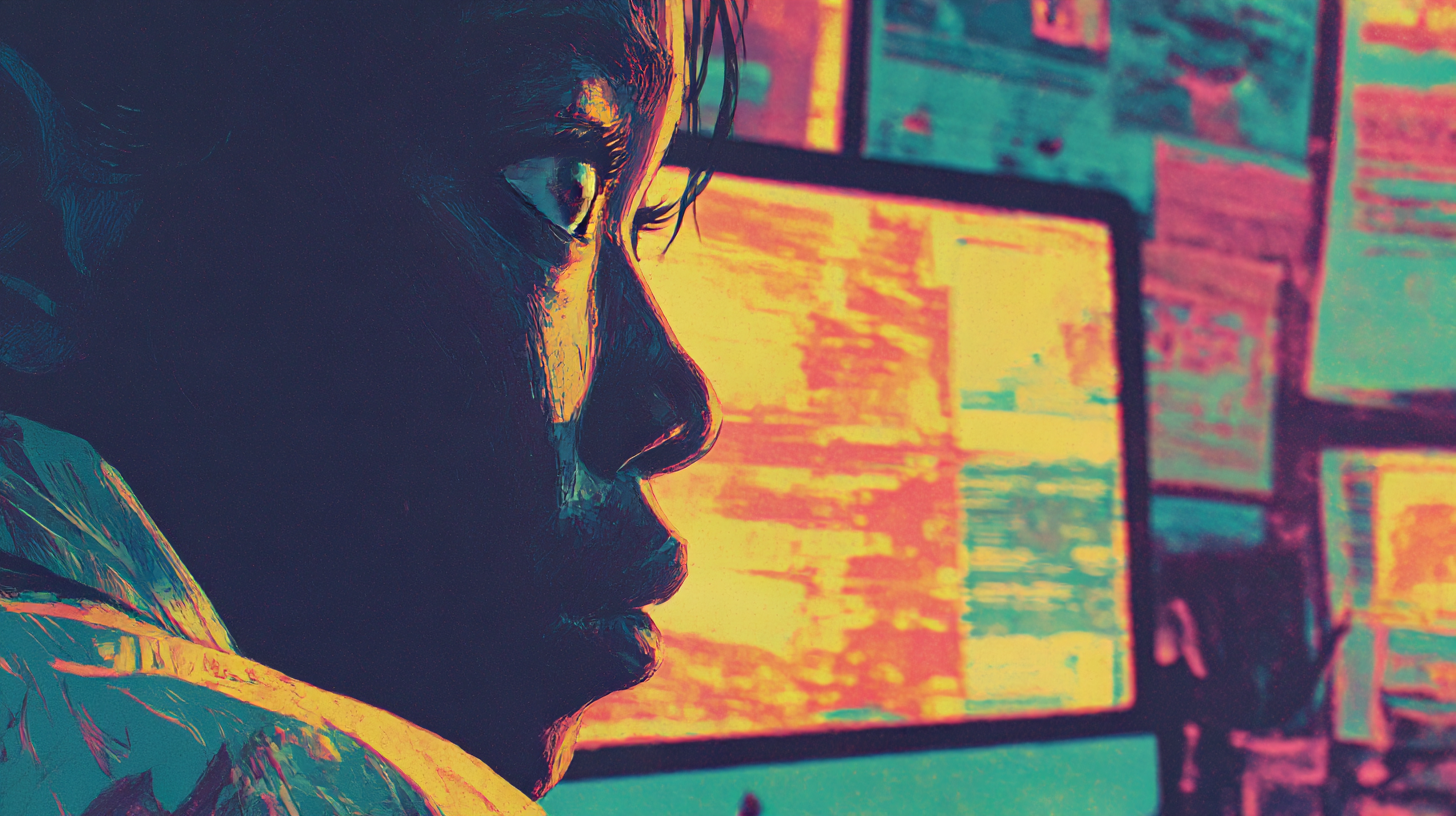
Sometimes, "the ick" operates as ego armor. Faced with the potential for intimacy, our unconscious may grab at any excuse to retreat. That cringe at the way they slurp soup? It might be the ego's way of saying, "Too close, too soon."
A study published in Personality and Individual Differences linked higher levels of narcissistic traits to increased sensitivity to minor partner flaws-suggesting that for some, "the ick" is an anxious avoidance of emotional exposure. When expectations are sky-high and tolerance for discomfort is low, even the smallest misstep can feel intolerable.
And then there's the collapse of idealization. "The ick" often follows a moment of incongruence, when the version of someone we've built in our minds clashes with reality. If we're secretly in love with an idea more than a person, even a harmless quirk can feel like betrayal. The magic breaks-not because of who they are, but because they failed to be who we wanted them to be.
So the next time the ick hits, it's worth asking: Is this truly about them... or is something deeper being stirred within me?
Spotting the Signs: When Desire Drains Away 🔍
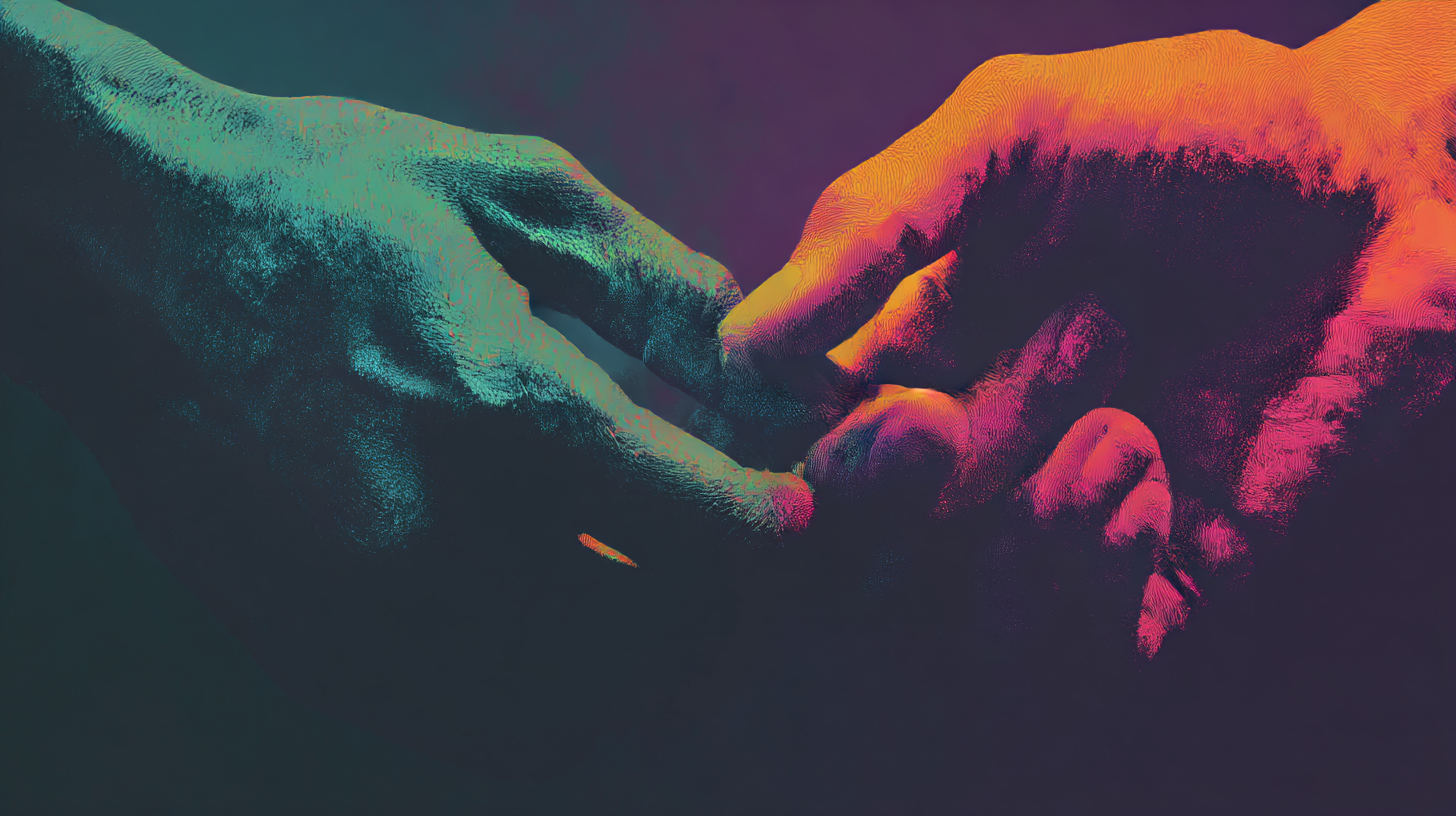
So how do you know it's the ick, and not just a passing moment of annoyance or a quirky adjustment phase?
Start with the body. "The ick" often hits with a visceral punch: a sudden wave of repulsion, a recoiling from touch, a physical stiffness when they lean in. Where attraction once flowed, there's now friction-sometimes even dread.
Things that once charmed you-how they giggle, their oddball socks, their quirky pet names-start to grate. You find yourself cringing at texts that used to make you smile. You rehearse how to cancel plans. Affection feels like a chore, eye contact becomes unbearable, and any talk of future plans makes your stomach churn.
And the wildest part? It's usually instantaneous. One moment, everything's fine. The next, it's over in your gut-even if your brain hasn't caught up yet.

Unlike logical concerns or red flags that build over time, "the ick" strikes like a thunderclap. You can't always explain it. And that's what makes it so disorienting.
But here's where the inner detective comes in: Ask yourself what lingers beneath the recoil. Is it an issue of taste? A clash of values? Or something more vulnerable-fear, overwhelm, shame?
Because while "the ick" may feel like the final word, it's often just the start of a deeper conversation-about what we expect from others, and what we're afraid to confront in ourselves.
Red Flag vs. Ego Tantrum: Discerning the "Bad Ick" from the "Benign Ick" 🆘

Not all icks are created equal. Some are fleeting and superficial-quirks that irk but don't define. Others cut deeper, pointing to patterns of behavior that may actually threaten the health of the relationship.
So how do you know the difference?
Let's start with the "Surface Icks."
These are usually aesthetic or situational triggers-idiosyncrasies that rub you the wrong way but don't have lasting emotional weight. Think: how they clap when a plane lands, their obsession with crypto, or the way they say "yum" after every bite.
These icks are more about you than them. They often stem from personal preferences, upbringing, cultural expectations, or an inflated desire for control. They're irritating, yes-but not necessarily incompatible. Many times, they reveal a mismatch of taste rather than values. A "nick," not an "ick."
Now, contrast that with the "Deeper Icks."
These go beyond aesthetics. They're behavioral patterns that reflect something fundamental-like how someone handles conflict, talks about their exes, or treats service workers. Maybe they never apologize. Maybe they constantly interrupt. Maybe they lack empathy or deflect blame.
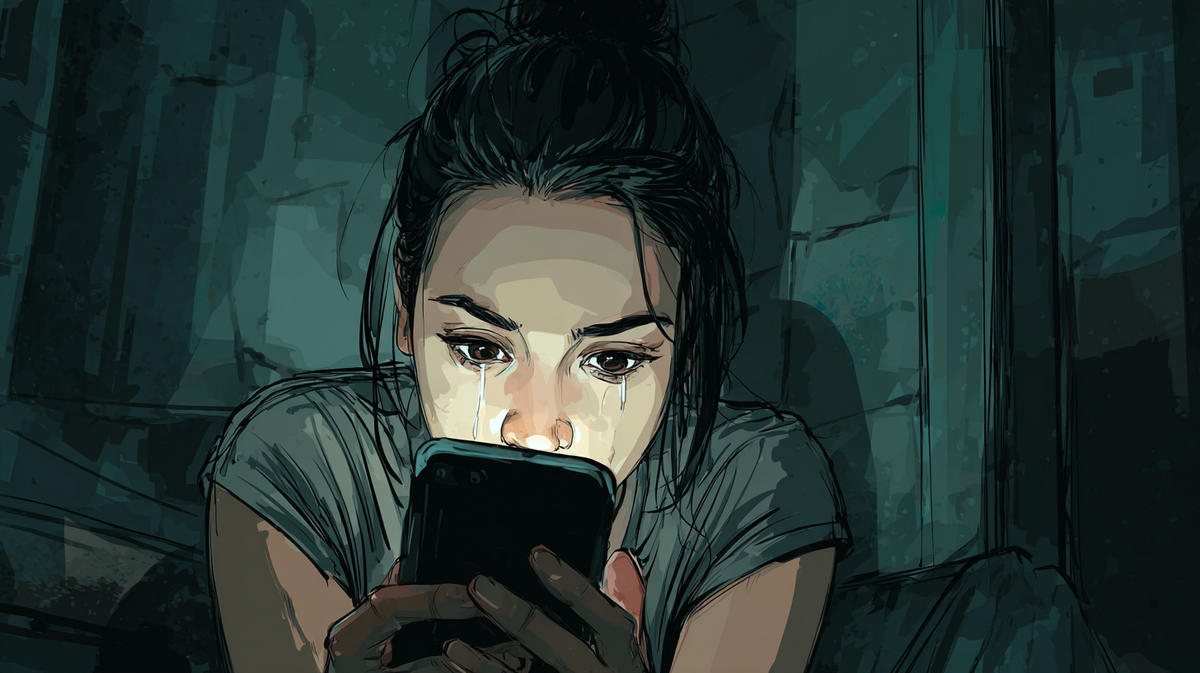
These are not quirks. They're signs. And while they might show up through similarly minor behaviors at first glance, the emotional residue they leave behind is heavier. You don't just cringe-you shrink. You start second-guessing your needs, minimizing your discomfort, or feeling unseen.
The key distinction? Impact.
Does the ick make you laugh a little... or make you lose a piece of your self-respect? Is it something you can joke about with friends, or something that gnaws at your sense of safety and dignity?
One is a momentary flinch. The other is a flashing signal that this might not be the right person for you-at least, not in a healthy, sustainable way.
Learning to tell the difference doesn't just help us be kinder to others-it helps us be clearer with ourselves. Because when we mislabel emotional avoidance as incompatibility, or mistake discomfort for danger, we rob ourselves of the opportunity to grow through connection-or to walk away with clarity rather than confusion.
Can You Come Back? Navigating "The Ick" and Moving Forward 💗

Here's the good news: not all icks are death knells. Some are detours, not dead ends.
If the ick comes from a place of surprise or discomfort rather than deep incompatibility, there may still be room for recalibration. In fact, many long-lasting relationships have weathered their share of icky moments-moments that, with time, humor, and empathy, softened into affection.
The trick is knowing when to pause rather than pounce.
Start with self-inquiry: What exactly am I reacting to? Is it a legitimate mismatch of values or emotional styles-or a reflexive rejection of vulnerability? Am I seeking a perfect fantasy... or opening myself to real, messy humanity?
This kind of reflection isn't just emotional housekeeping-it's emotional growth. It helps you figure out whether you're protecting your peace or sabotaging potential.
Next, shift from critique to curiosity. Ask yourself: What does this moment bring up in me? Is it reminding you of a past relationship, an unresolved fear, a personal insecurity? By getting curious about the source of discomfort, you're more likely to respond with clarity instead of just reacting out of habit.

Also, zoom out. Take stock of the broader emotional landscape. Are they kind? Do they make you feel safe, seen, and supported? Or is their behavior making you feel smaller, silenced, or unsafe?
It's okay if not every ick unravels into a deeper insight. Some are just personal boundaries asserting themselves, and that's healthy too. But when it's less about them and more about you, "the ick" can become a flashlight, illuminating where you might still be afraid to be seen, loved, or held.
Ultimately, you're not wrong for feeling it. But you're also not bound by it.
You don't have to bolt at the first sign of discomfort. Nor do you have to stay because you're scared of being alone. The mastery lies in decoding the message. Sometimes, "the ick" is a trapdoor. Other times, it's a mirror. Learn to look.
The Mirror of Modern Society: What "The Ick" Reveals About Us 🪞

We don't fall out of like in a vacuum. "The ick" blooms in a cultural greenhouse of hyper-curation, infinite options, and digital performance.
Start with dating apps. The "swipe-left economy" has conditioned us to evaluate potential partners the way we scroll through playlists-rapidly, intuitively, and often, superficially. Profiles are optimized to sell a version of the self, and choices feel endless. In this landscape, "the ick" isn't just a private shudder; it's a symptom of decision fatigue. Why tolerate imperfection when the algorithm promises someone better, hotter, funnier just a few swipes away?
But it's not just about choice-it's about performance. Social media has turned dating into content. A quirky date story becomes a TikTok confession, a cringe moment becomes a meme. Suddenly, it's not just that he wore toe shoes-it's that everyone knows he wore toe shoes. The desire to connect is now entangled with the impulse to entertain. And the ick? It thrives in this performative loop.
We're also more emotionally avoidant than ever, even as we yearn for intimacy. Research from the Pew Research Center shows increasing rates of singlehood and ambivalence about commitment, especially among younger adults. Vulnerability has become a riskier proposition in a world that trades depth for digestibility. It's easier to bolt than to sit with discomfort.

Which brings us to the most sobering truth: Sometimes, "the ick" isn't about them-it's about our own fear. Of being seen. Of being needed. Of needing someone back.
In this way, "the ick" can act as a psychological eject button. Rather than face the ambiguity of growing closeness, we fixate on a flaw-any flaw-as justification for escape. It's a defense mechanism, clean and convenient, that spares us from confronting our own vulnerability.
And there's the paradox: In the age of hyperconnection, we've never been more reactive to disconnection. One odd laugh, one ill-timed text, and we're gone. The ideal of love as messy, imperfect, and unfolding? It's harder to hold onto in a world demanding clarity and perfection at all times.
"The ick" might be a joke-but it's one that reveals our deepest anxieties about who we are, how we love, and whether we can tolerate the sticky, awkward business of real connection.






